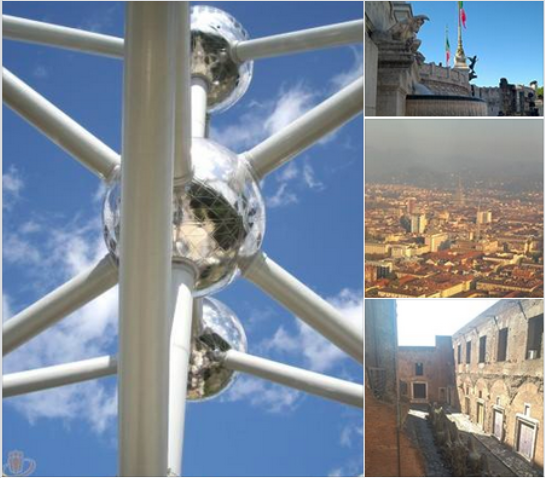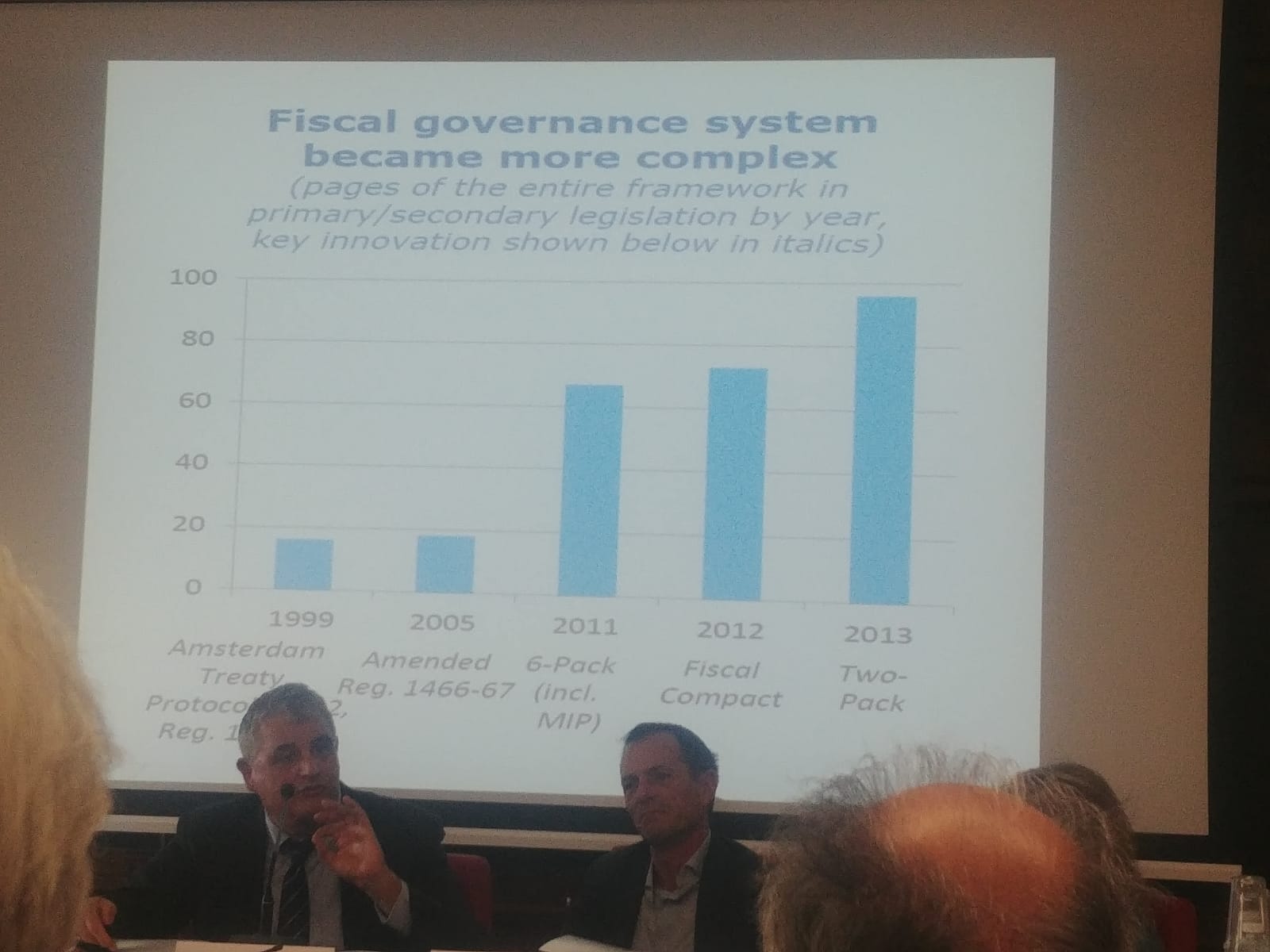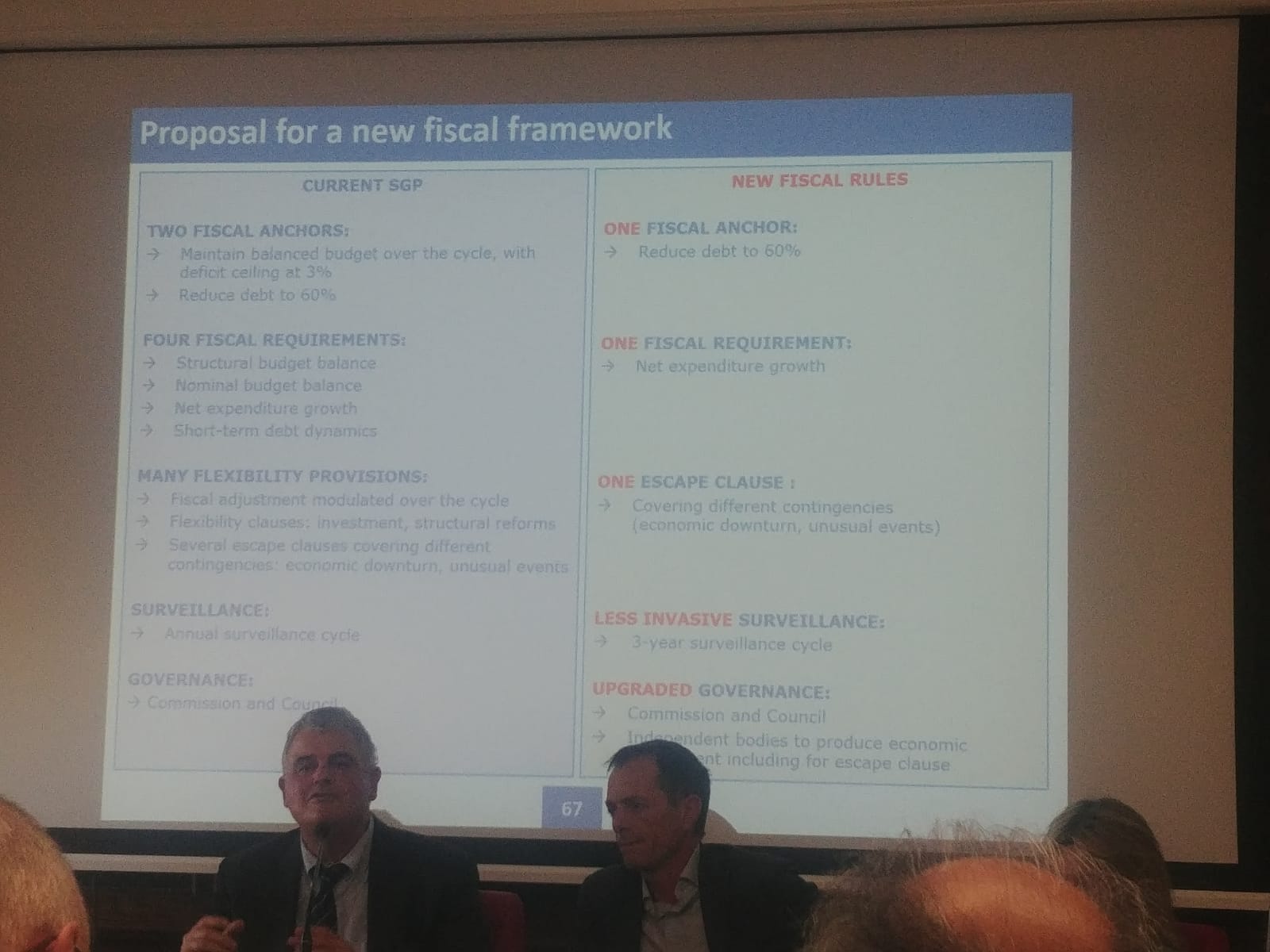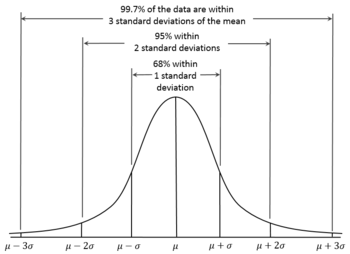Viewed 8667 times | words: 4174
Published on 2019-05-19 10:13:01 | words: 4174

May 19th, just 7 days before the voting booths will open in Italy, specifically in Piedmont, for both the European Parliament and Regional election (Governor and Regional Parliament).
So, this article will be both a summary and an outline of what might be forthcoming.
The convergence will be toward themes that, frankly, aren't so funny and most politicians and commentators rather not talk about.
At least locally, there is a potential silver lining- as it is not just Europe, also Italy carries out reforms only during a crisis.
Reason? More or less the same: if it is difficult to have over 20 Member States agree (let's see how many will stay in or join in the next decade), imagine a country divided by location, tribes within location, and other additional overlapping allegiances.
The incumbent Government already will have to some head scratching between finding the couple of dozen of billion EUR needed to avoid a VAT increase as well as to offset the additional burden deriving from the spread rollercoaster.
But there are some underlying and forthcoming issues that are actually turning those into minor points.
So, allow me to first introduce some items, and then use literary references to lighten the tone a little bit up and share a framework of reference.
First item: over the last few days, either via Internet or in person, I had a chance to listen to or be part of discussions ranging from thinking about lessons learned on public debt reduction, to the current state of affairs in Italy, to various proposals for a new economic policy for Italy, to economic and social side-effects of potential changes in Europe (and Brexit is just one of the elements).
Second item: the title is a a mouthful, I admit- but it isn't a show-off, it is just a shortcut (explanation later).
Third item: as there is just one week before the European Parliament (and, in Piedmont, Regional) elections, and we still do not know if UK will do an "Italian job" (i.e. last minute fixing) by reaching a deal by May 22nd (so that UK will not need to open the polls next week), as I discussed with others I think that it is appropriate to think about what's next; as of yesterday (May 18th), it seems that the negotiations between Labour and Tories to "fix" are at a standstill- but, frankly, since the referendum we had many theatrics- so, stay tuned.
In past articles often I referred to one or more of those elements, but let's just say that Milgram was about testing how rational we are when we are confronted with an authority that supposedly releases us from personal accountability (https://en.wikipedia.org/wiki/Milgram_experiment).
As I said to a friend few days ago, also if I served only my compulsory service in the Italian Army in the mid-1980s, my studies before, after, and observations during and after of the aggregate approach of us humans when working in groups make me still highly skeptical about the viability of noble statements such as the supposed right to refuse to obey unjust orders, even in the case of war.
Add to that the natural cultural instinct of a country that, since the end of the Roman Empire, still relishes on a mythical past, and has to deal with a continuous streams of "foreign rulers", and you will see that sometimes the trouble isn't what the ruler wants (foreign or domestic), but what some assume that the ruler wants- building up to a feeding frenzy, sometimes.
The same applies, on the other side, to how much power can lead to misuse if unchecked, as in the famous Zimbardo "Stanford prison" experiment: giving to reasonable and educated people roles and then removing checks and balances creates even in artificial settings a distortion that doesn't really match our idealistic concept of how "advanced" are our democratic societies (https://en.wikipedia.org/wiki/Stanford_prison_experiment).
The key concept here is always "checks and balances".
Another, older famous experiment was in industrial organization (hence, the "Hawthorne"): often, checks and balances, or expressions of appreciation, need neither a "carrot" nor a "stick" to deliver results: just the assumption of their presence.
In our society, where we can be easily considered to be, at least in major urban centres, potentially under observation and surveillance (now even software-based pre-emptive surveillance) 24/7, the "Hawthorne effect" is an area that should be considered an element within policy setting (https://en.wikipedia.org/wiki/Hawthorne_effect).
I referred to a funny example that I found in the late 1990s in Latvia: as the "speed radar" was back then an expensive tool, and the local purpose was anyway to reduce road casualties, my friends told me that they could install the "detector device", but they would never know if what the detector alerted on was a real one, or a decoy giving out the same signature, as there were few true and many fake, all mobile.
To avoid to overload the title, I did not add what happens when groups start behaving following what they assume to be "common wisdom"- in the end, if you like, you obtain a "Pavlovian" kind of response: in Italy, talk about corruption, and routinely you get the expected answer- pity that, of course, "corruption" is what "others" do, certainly not you...
Referring to those experiments enabled to deliver something in half a dozen paragraphs, instead of having to drop in my usual few thousands words, to deliver the same message.
Another interesting element comes from a short book (actually a reprint of a report on the Marengo battle and Napoleon from Marshal Berthier, published in 1803 and 1805) that I picked up by chance in a library the other day, as I dropped by to return other books (the beauty of open-shelves library is that they enable serendipity).
Often, turning your weakness into a strength requires also a degree of social engineering, i.e. considering how your counterpart perceives what will be your next move.
In the case of the battle Marengo, of course a report written by an insider about who was now the Emperor will contain a certain degree of "flexibility", at least about which details you report and the ones that aren't relevant.
It would be interesting to read, few years down the road, an analysis of how the Brexit negotiation was managed on both sides, from insiders, ditto for the current Italian election campaign at the national and European level.
About the storytelling on Marengo: mobility (having less assets and associated supply chain than your opponent), logistics, and preparation while making troops movements misleading, play a significant role.
And this is something that still holds true.
Purposedfully, I haven't watched the Euronews debate between the "candidates" to become the leader of the European Commission.
Ditto for debates between the candidates for the role of Governor of Piedmont.
Both will be something to discuss on next week.
Incidentally: in Italy, we are still without a minister covering the European affairs (and negotiations)- quixotic choice, considering that it will be critical for the negotiations about the transition to post-Brexit (and setting up the new European Commission structure).
My reading? Waiting for May 27th, to see what is the balance of power after the elections.
I am holding in my hands a booklet published by "La Repubblica" in 2013, with the title "L'Italia post-populista", an intervie
w moderated by Lucia Annunziata, with Ilvo Diamanti, the late Stefano Rodotà, and Gustavo Zagrebelsky, held in Florence on June 8th 2013.
The options presented back then frankly were the same discussed now, as well as the issues about our democracy (lack of identification with representative democracy, etc).
Italian elections are always quite "theatrical"- at least that is my experience since I observed campaigns from when I was in elementary school (politically active family, so I saw campaigns and their logistics first-hand since my first year in elementary school).
But it is closer to a pièce called "questa sera si recita a soggetto" (https://en.wikipedia.org/wiki/Tonight_We_Improvise), from Pirandello.
A curious detail, from Pirandelloweb (https://www.pirandelloweb.com/il-teatro-di-pirandello/questa-sera-si-recita-a-soggetto/): "PRIMA RAPPRESENTAZIONE 14 aprile 1930 - Torino, Teatro di Torino, Compagnia appositamente costituita diretta da Guido Salvini. Prima rappresentazione assoluta a Koenisberg il 25 gennaio 1930, tradotta in tedesco da Harry Kahn col titolo Heute Abend wird aus dem Stegreif gespielt."
If you understand Italian, you can read it at the link above, but it is available elsewhere also in other languages (English included).
The subject, in this case, is supposedly the European Parliament elections at a time when, thanks to Brexit, the European Union is both restructuring and soul-searching (and, ça va sans dire, trying to rebalance the distribution of powers: Monnet method, crises are what enabled most reforms, since the Treaty of Rome): "The problems that our countries need to sort out are not the same as in 1950. But the method remains the same: a transfer of power to common institutions, majority rule and a common approach to finding a solution to problems are the only answer in our current state of crisis" (Monnet 1974, quoted by Mario Draghi at the Award of the Gold Medal of the Fondation Jean Monnet pour l'Europe, Lausanne, 4 May 2017 https://www.ecb.europa.eu/press/key/date/2017/html/ecb.sp170504.en.html ).
Frankly, in Italy there is less dissent on what is the real subject, i.e. choosing what to do in Italy, after the elections- the European Parliament elections are just a kind of background scene, than in Pirandello's piece.
There is obviously dissent on "what's next": as each party is considering a different script to stage.
Let's use Shakespeare examples.
Somebody would like "much ado about nothing" (Much Ado About Not(h)ing https://en.wikipedia.org/wiki/Much_Ado_About_Nothing ) i.e. another four years of government, despite all the quarrels between the two ruling parties, quarrels that seem focused mainly on attracting votes left - M5S - and right - Lega - so that, after the elections, a rebalancing of the government can be assessed: married to the end of the current term, hoping for the demise of the main political parties on the centre-left and centre-right.
Incidentally: PD, the leading political party, as it obtained a stunning 40% in the previous European Parliament elections, now seems to declare a success if reaching a target of... 20%, and many commentators have doubt about its feasibility.
If Athens cries, Sparta is not laughing, as also Forza Italia (from Berlusconi) still is unable to identify its own role and future leadership (not just leader- leadership).
Others are thinking more in terms of "A Midsummer Night's Dream" (A Midsummer Night's Dream https://en.wikipedia.org/wiki/A_Midsummer_Night%27s_Dream ), also if our concept of manipulative fairies verges on men who have been on this planet for more than three quarter of a century.
Others talk about storms and monsters (The Tempest https://en.wikipedia.org/wiki/The_Tempest ), but frankly look more as a famous prince (Hamlet https://en.wikipedia.org/wiki/Hamlet ).
But, in the end, all seem to be quoting routinely Henry V "St Crispin's Day Speech" (the one with "band of brothers" https://en.wikipedia.org/wiki/St_Crispin%27s_Day_Speech )- albeit all assuming that they are the one going to defeat the enemy.
As for a description of what each party plans to do at the European Parliament: frankly, I toyed with an online questionnaire that supposedly gives you a "radar chart" of where you are- but it was frankly misleading both in structure and content.
I was toying with the idea that I did when I created this section, while already living in Brussels, i.e. collecting and posting all the political platforms of all the Italian political parties on the ballot.
Frankly, after reading an outline of the main half-dozen on few sites, I see that even commentators have some confusion.
So, I will maybe collect just for my library, for future reference, the sources.
Most of the "promises" sound as something either so generic that you can always claim a success, or so utopian that you can always claim that you were for it, but there wasn't enough consensus.
Down to Earth, and this is my last point, the "Gaussian distribution" I am referring to is my summary of a conference on the European Fiscal Board and some potential changes.
I will share just two pictures: the first one, showing how, in order to get our 3% 60% etc EU criteria "easier" to manage with flexibility, actually the "guidelines" became increasingly Kafkaesque- up to the point of having a 200+ pages vademecum...

At the conference, I heard for the 1000th time since 2012 (when I re-registered in Italy) how "exceptional" we are.
It was reported that we are the only country that is still way below the income level that we had in 2007 (over the last two months, I heard various figures- the latest one is 7% less that our 2007 levels).
Between 2003 and 2007 I had actually contacts in both the public and private sector in Italy, and I must say that the view from the ground was that already in 2004 and 2005 we were in a crisis- that started few years before.
Already back then, the State had lost the ability to carry out with internal structures the assessments and planning required to do investments- and relied on external potential suppliers to help e.g. in preparing call for tenders.
I will let my readers in business or in government elsewhere consider the consequences: you cannot really remove potential conflicts of interests, unless you ensure that anybody doing those assessment on A cannot be flipping roles with other potential candidates in other cases (or in other parts of the same sector).
If you outsource the actual work in those preparation and vendor evaluation activities, or ensuing delivery, you still need to retain "in house" the ability of oversight, governance, control, monitoring: you cannot just shuttle everything out and focus only on footing the bill.
Having few competitors controlling each other (as it is well known in Brussels) with almost no oversight is the best way to generate incentives to collusive practices: you lack the "Hawthorne effect"- as ex-post controls alone (e.g. in Italy the Corte dei Conti) are de facto unable to deliver remedial actions.
Now, since 2012, I increasingly read on magazines and newspapers and heard in conferences, workshops, etc. how things worsened- from the composition of commissions that expand the roster of participants hoping to avoid conflicts of interests, and obtaining just a removal of any accountability, to the sheer inability to deliver proposals or apply for funding- even when available.
At this latest conference, I heard an encore of another issue: Italy received flexibility and access to funding to add investments without being counted toward the (in)famous parameters, but... we simply were unable to show the systemic ability to deliver proposals that were acceptable, and therefore failed to use all that we Italians were entitled to.
I worked a bit since 1990 in organizational and process change- and if you want to streamline something, you cannot have too many outliers, "exceptional", as otherwise whatever rule you define to replace older, more complex rules, will risk generating the need of "checks and balances" that are almost punitive for the worst-performing outliers.
Well, look at this second picture:

If rules were to be "simplified", of course this would imply a consensus on what is "the new normal".
Being the only outlier within the Member States affected would actually imply that either the new rules would be unworkable for Italy, or that a specific subset of rules for "those who do not fulfill ".
There was a "serial prime minister" in Italy (7 times) who signed the Maastricht Treaty for italy, the late Giulio Andreotti (almost went for a eight round, and covered various roles in other governments).
A quote from a 2016 article celebrating the 25th Anniversary of the Maastricht Treaty (https://www.ilsole24ore.com/art/commenti-e-idee/2016-01-22/l-europa-maastricht-nasceva-25-anni-fa-momento-decisivo-la-nostra-storia-recente-145406.shtml?uuid=ACHrxQFC): "Il 7 febbraio del 1992 ad apporre la firma sul trattato di Maastricht c'erano per l'Italia Andreotti, all'epoca a capo del suo settimo e ultimo governo, insieme al ministro del Tesoro, Guido Carli. Si dice che sulla via del ritorno da Maastricht a Roma Carli abbia commentato: "Nessuno in Italia è consapevole degli effetti che questo trattato avrà sul nostro Paese". "
It seems that we still haven't yet fully understood the cultural changes required to move toward the center of the Gaussian distribution (picture from the Wikipedia page https://en.wikipedia.org/wiki/Normal_distribution).

But I would like to close with some positive news from Piedmont (and actually in part from Rome).
At least in Piedmont (and maybe also for Italy), there is a (moderate) silver lining.
I wrote in the past what I think about the Italian recent and not so recent industrial past, and opportunities opened by our chronically small companies.
See the articles under this section as well as those under the rethinking business section, with concepts summarized within https://robertolofaro.com/innovation-italy.
As discussed above, I am not the only one who thinks that we are using our "excellence" in food, landscape, and long forgotten glories represented by buildings that we neither maintain nor restore as needed...
...as they were a cocoon shielding us from our current reality, as outlined above.
In Piedmont, two banking foundations with massive resources already supported an expansion of local higher education, re-purposing of industrial buildings toward culture and innovation, and assorted activities to ensure continuity at least within the "human capital supply chain" needed to keep advanced industry within our territory.
But unless all that investment is supported by economic policy and initiatives not just from local authorities, we are simply postponing an industrial decline- already a significant chunk of innovation in manufacturing shifted either abroad or in other regions, where it is developing.
Well, local elites are focused on a different model- so, it is up to others: and both the local Chamber of Commerce and Industrialists associations de facto converged with local authorities and banking foundations into a "coalition of the willing".
Let's just see the example of the forthcoming "health citadel": yes, it can be a kind of "welfare for the visiting (paying) rich", keeping a fractional reserve to support some services for the local population that would be otherwise not be able to afford using those services with our current and forthcoming local income mix.
But, if blended with an innovation centre, using our chronically small companies to create a continuous innovation supported by a backbone of well-funded research facilities, it can become something more.
And the same applies by using lessons learned in our automotive past to help doing what already other countries within the European Union are working on- i.e. preparing for a future within industries ranging from automotive to food manufacturing that will require less people, more machines, and better cooperation between the two.
So, the silver lining was well represented by articles scattered across the three newspapers delivering now local news- La Stampa, La Repubblica, and (last but not least) Il Corriere della Sera.
Funny that only the first one is originally from Turin, but the last one, based in Milan, in my view, is actually doing a better job in...presenting trends in Turin.
Routinely I make round-robins around the three.
Somebody would say that it is just a matter of political tactics, but also the central Government recently announced funding and support for innovation within the automotive industry in Turin.
Yes, this is a political bonus for the incumbent Mayor of Turin, as she will be probably released from the post-Soviet-style "no more than two mandates" mantra of M5S, and allowed to run for a second term (prior to become Mayor, she was already an elected officer).
But, frankly, I do not care: what matters is the convergence of positive initiatives that go beyond the usual "bottega&mattone", i.e. setting up more shops (food&non-food) and new buildings, and going back to thinking long-term.
As the "European Detroit" (a nickname for Turin, when it was the heart and engine of the Italian automotive industry) could actually be a laboratory on transitioning toward a different model of industrialization and mobility- and maybe even attract talent to help develop attractiveness for the newly founded (and funded) innovation structures.
Side-effect: while XX century mobility was about personal vehicles, XXI century mobility will increasingly integrate the whole territory and a range of services, and is already introducing in those in their 20s-30s a different concept of "ownership".
Anybody who met me in business since the 1980s, in Italy or abroad, knows that I dislike the narrow-minded tribal attitude that we Italians often develop: we rather fail or try to re-invent the wheel by using shortcuts (that usually fail after wasting resources), than ask those belonging to another "tribe" to join forces.
Therefore, any cross-tribal initiative that isn't just about a single event, no matter how long (e.g. the ATP finals), but about something with a potential impact well beyond the political half-life of current office holders is more than welcome: sorely needed.
What I liked is also that the two foundations were joined by a local bank, so that a "full-stack" of finance structure supporting the whole lifecycle will try to dispel another curse: Italy still has no local "unicorn" (i.e. a startup achieving or exceeding 1bln in valuation).
Let's hope that all this "entente cordiale" will last long enough to seed results.
Otherwise, it will risk just creating new offices to be appointed to, or new roles to be hired in, all delivering plenty of conferences, papers, etc- as I observed since I started working abroad in the late 1980s: any crisis delivered new "poltrone", "think tanks", "coordination", while the town keep lowering down its size and income mix.
Next time I will switch just to politics (and also discuss on https://robertolofaro.com/ctr-channel another issue about becoming "future ready").
For the time being... have a nice Monday- let's hope that from May 27th... we all will settle on "All's Well That Ends Well" (https://en.wikipedia.org/wiki/All%27s_Well_That_Ends_Well ), as in that play switching roles when and how needed, and solving some ethical issues, to deliver an interesting, systemic result.
 _
_